Internet Marketing FAQ
What is Internet Marketing?
Digital marketing and/or website marketing is a series of tactics, any, or all of which, can drive traffic to your website. Examples of these tactics are Pay-Per-Click on Google Ads and Google Display Ads, Facebook, LinkedIn, Instagram and Pinterest ads. Regular blogging is another way to create content to draw people to your website.
For a more in-depth look at Internet Marketing, read our article.
What is Pay-Per-Click?
Pay-Per-Click advertising is a tactic used by top tier search engines like Google and Bing to get prospects/buyers to your website. It is not only efficient, but also a way to drive traffic to the website and generate leads. Per-Per-Click is used for Google Ads and for Google display campaigns.
What is Content Marketing?
The Content Marketing Institute defines content marketing as a “technique of creating and distributing valuable, relevant and consistent content to attract and acquire a clearly defined audience – with the objective of driving profitable customer action.” Content is any information of value to your audience on your website or on social media that facilitates call-to-action. Think blogs, videos, infographics, or dynamic content like an e-catalogue.
What is Search Engine Optimization (SEO)?
Search Engine Optimization (SEO) is a process aimed at increasing your search visibility and leads.
SEO is a continuously evolving process. Originally, SEO was used to focus on putting the right keywords in the right places so you’d be relevant to search queries containing the keywords and show up in search results. That, by itself, doesn’t work anymore.
Holistic SEO focuses not only on visitors to your website but their entire experience. It ensures your target audience finds you, gets the information they need, and also does what you, the website owner, wants them to do – whether that’s to make a purchase, sign up for a newsletter, fill out a lead form, download an article or something else.
Holistic SEO looks at technical aspects of your website like speed, mobile responsiveness, and security. It ensures your content is sought after by your search audience, is useful to them, and learns the signals Google uses to assess its quality and relevance.
What is Local Search Optimization (LSO)?
Local Search Optimization (LSO) boosts the probability of bringing local prospects to your site. It depends on many of the same tactics of SEO – including main headlines (H1), title tags, and meta descriptions.
Local SEO requires an optimized Google Business Profile page, and Google Map be setup to support “near me” search results.
